Loredana Alberti, co-owner of Fungar in Coriano di Rimini, truly believes in the cold chain. So much so that temperature and humidity are constantly monitored, especially in the areas dedicated to field and portobello mushrooms.
"It's important that supermarkets also place them in refrigerated units, so the mushrooms remain fresh and fragrant for as long as possible."
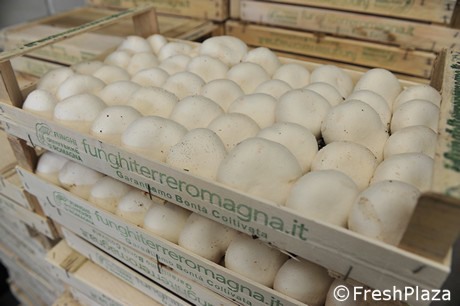
Fungar was established at the end of the 1970s by a group of Rimini hoteliers who wanted something to do in winter months. After a couple of years, Loredana and her husband, together with Maddalena Zortea and Massimo Magnani, started running the business. The company will attend the next edition of Macfrut.
Fungar cultivates mainly field, portobello, oyster and branched oyster mushrooms. 10% of the produce is exported and the the company sells mainly to retailers and wholesale markets.
Mushroom cultivation follows well-defined phases. First, the soil must be prepared using cereal hay. Fungar uses wheat and barley hay with fine-cut hay and agricultural chalk, which is soaked and left to ferment in dedicated rooms.
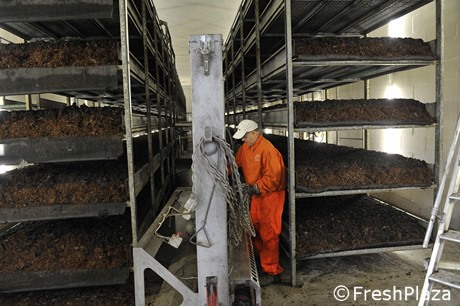
Fermentation is monitored for three weeks and, once over, the entire substrate is warmed. Sowing or inoculation is then carried out.
During the second phase, the hyphae of the mycelia grow and invade the whole soil. This phase too is carried out in facilities where temperature and humidity are constantly monitored. After two weeks, the soil can be moved into fruiting rooms or greenhouses.
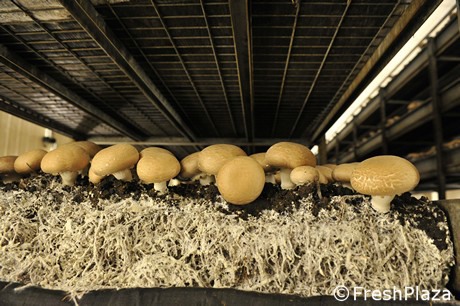
In case of field mushrooms, the soil is located twenty cm high, covered with a layer of peat and soaked. The first harvesting is carried out after three weeks. In case of oyster mushrooms, the soil is divided and placed in greenhouses. The first harvesting will be carried out after 5 or 6 weeks.
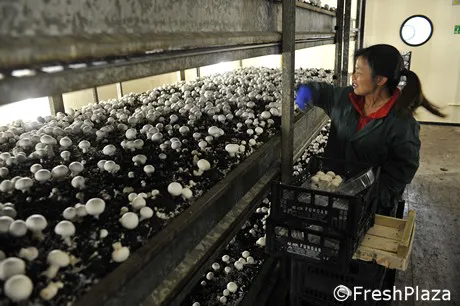
Harvesting is carried out exclusively by hand, selecting ripe mushrooms to be placed in crates. Each crate has a code, so the produce can be traced all the way to the consumer. After the fruiting cycle is over - 6 weeks for field mushrooms and 14 weeks for oyster mushrooms - the soil is taken to the countryside to fertilise the land.
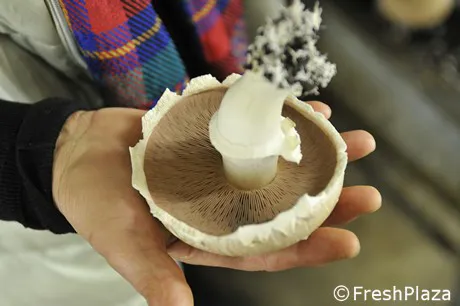
Gills of a portobello mushroom
The PO and the Consortium
The mushroom sector is often ignored, but it is well organised. The Gbc Funghi Terre di Romagna PO gathers 7 companies from the Rimini area which sell their produce under a single brand.
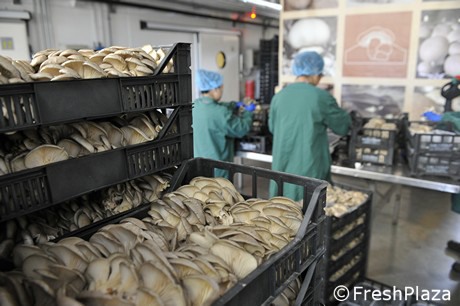
Consorzio Fungo Italiano Certificato gathers around 70% of the Italian production and was established by Gbc Funghi delle Terre di Romagna together with another three Italian POs specialised in mushroom cultivation. The objective was to contribute to spreading the knowledge about a product with great nutritional value: cultivated mushrooms are a source of protein, low in calories and have a very low sodium content.
Fungar is part of both the PO and the consortium. It employs around eighty people and last week received the Welfare Index PMI prize, which was very well deserved as there is a truly relaxed atmosphere in the facilities. Loredana knows each and every one of her employees. It may seem simple but, as most of them are Chinese, remembering all the syllables is not that easy.
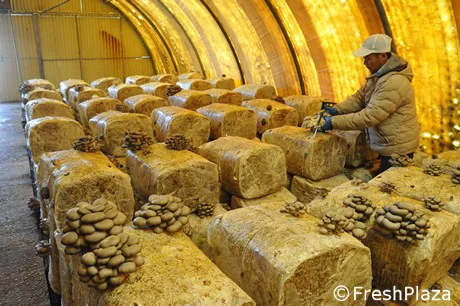
Oyster mushroom harvesting
In addition, the owners often help their foreign employees getting settled in, enrolling their children at school or learning the language.
"Sales are not bad at the moment, though consumption is higher in autumn and winter. We are trying to spread the knowledge by taking part in events and fairs, and by organising school tours."
For further information:
Fungar
Via Bruscheto, 27
47853 Coriano (RN)
Email: info@fungar.it
Web: www.fungar.it
